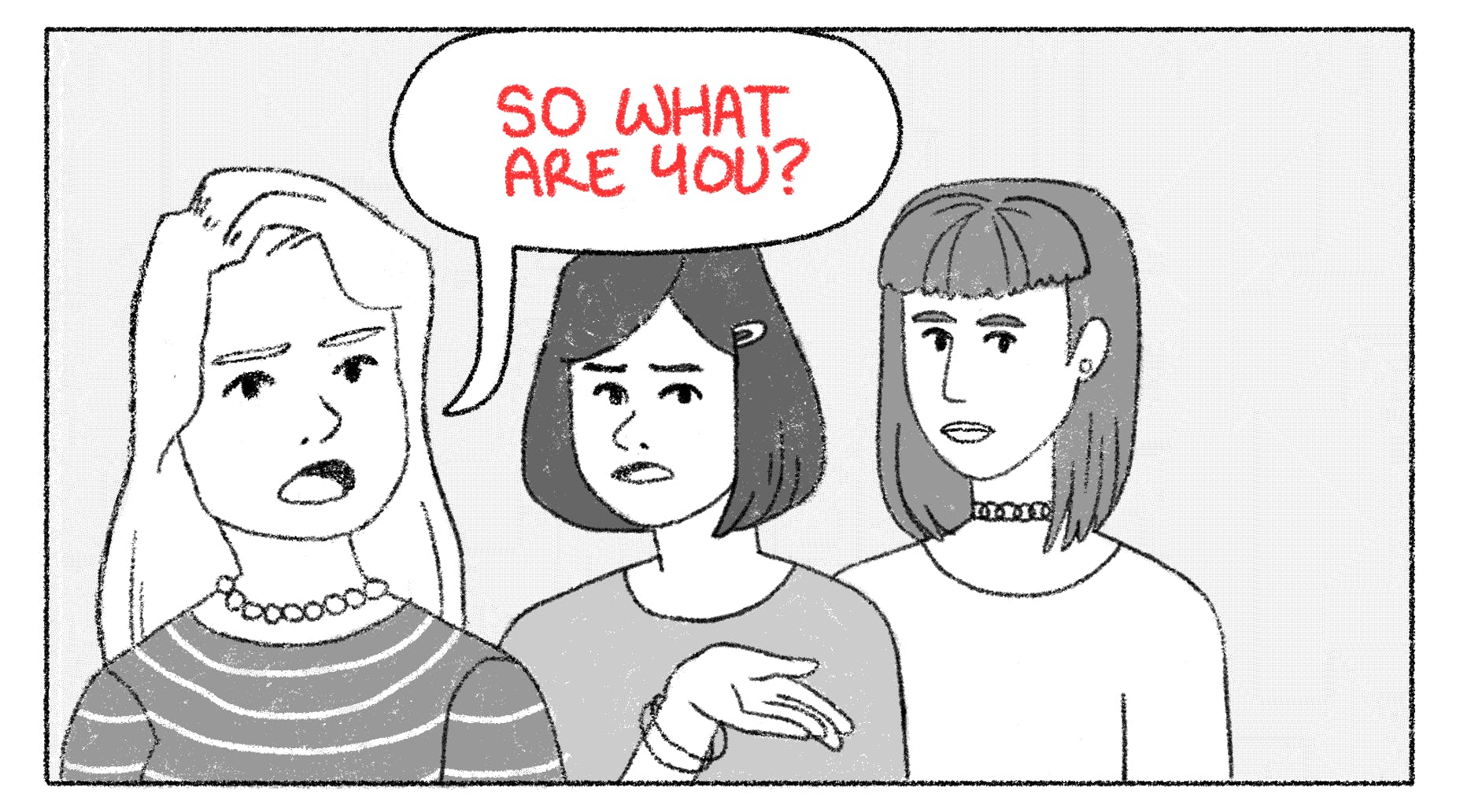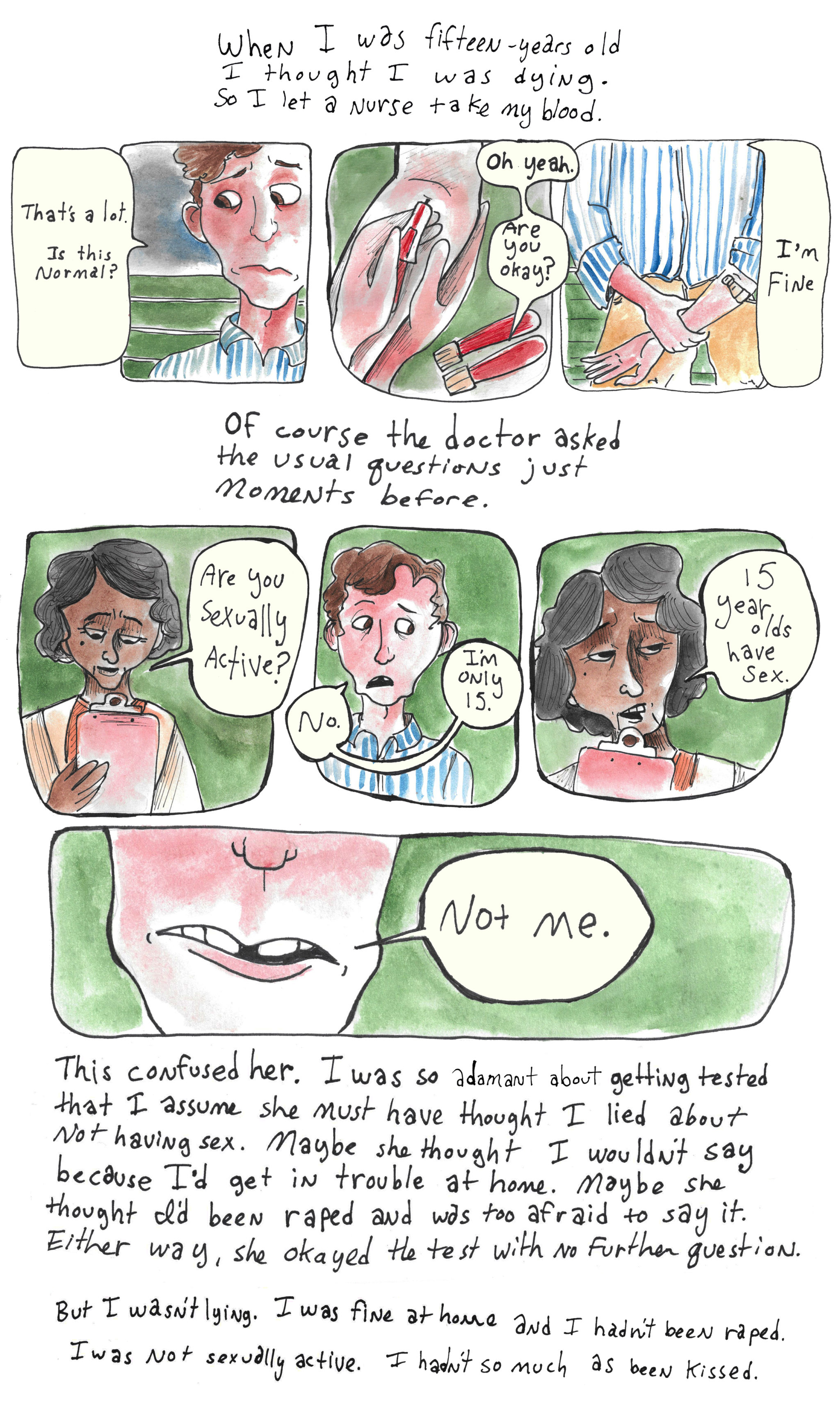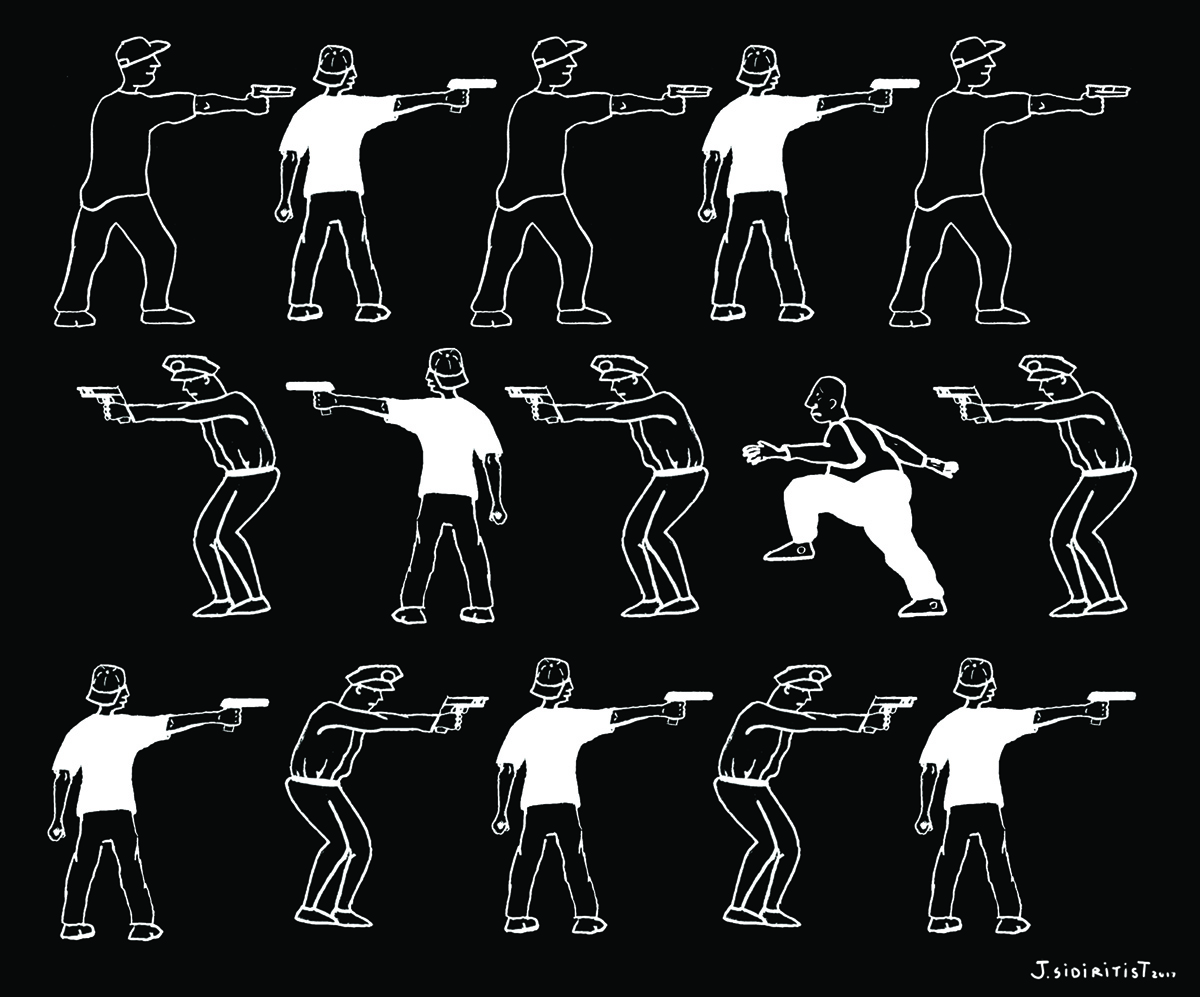Announcement for the 2022 Locher Award, including cartoons and comics by the 2022 Locher Award Winner Masha Zhdanova, runner up Alexandra Bowman, and outstanding submission Han Hampy. Thank you to the judges Kevin Necessary, Ann Telnaes, and Angelo Lopez.
Announcing the 2021 Locher Award!
The results of the 2021 Locher Award, including the winner, Sam Nakahira, the runner-up, Katie Vuong, and the finalists, Reilly Branson, Tom Coute, and Izzy Boyce-Blanchard. This year’s Locher Award was judged by Dr. Gretchen Koch, Chelsea Saunders, and Kevin Necessary.
The John Locher Memorial Award is a contest for emerging cartoonists, ages 18-25, whose work demonstrates both clear opinions and strong artistry on political and social topics. The AAEC/John Locher Memorial Award was founded in 1986 by members of the American Association of Editorial Cartoonists (AAEC). They felt the need to establish an award that would not only honor the memory of John Locher but also would help discover young cartoonists and stimulate interest in editorial cartooning among college-age students in North America.
Announcing the 2020 Locher Award Winner!
Announcing the 2019 Locher Award Winner!
2018 Locher Award Winner
Congratulations to Charis Jackson Barrios on winning the 2018 Locher Award!
"Charis is producing well-crafted, smart, affecting comics that are equally adept in dishing out facts and relating personal anecdotes, especially with regard to race. Her comics are thoughtful and substantive, executed in a bold, readable style, and address a range of timely, relevant topics from a unique perspective underrepresented in political cartooning."
You can read Charis's comics by clicking through the images below.
Charis received a BFA on a full scholarship from The Cooper Union in NYC. While a student, Charis did design and illustration projects with places like Frederator Studios and BuzzFeed. She has recently made comics for The Nib and Splinter News. You can find more of her work at her website, https://www.charisjb.com.
Outstanding Submissions
We would also like to recognize the following cartoonists for their outstanding submissions to the 2018 Locher Award.
1. Leila Abdelrazaq
Check out more of her comics and illustrations here.
2. Sage Coffey
Check out Sage's work here.
3. Madeleine Witt
See more of Madeleine's work here.
4. Caroline Cook
See more of Carolines's work here.
Thank you to all who submitted to the 2018 Locher award!
The Judges
The AAEC and the Locher Award would like to thank this year's panel of judges.
Sage Stossel is an editor and cartoonist for The Atlantic.com and a regular contributor of cartoons to The Boston Globe and The Provincetown Banner, for which she received a New England Press Association Award. She grew up in a suburb of Boston and attended Harvard University, where she majored in English and American Literature and Languages and did a weekly cartoon strip about college life, called "Jody," for the Harvard Crimson. Her cartoons have been featured by The New York Times Week in Review, The Washington Post, CNN Headline News, Cartoon Arts International/The New York Times Syndicate, The Boston Globe, Editorial Humor, Copyediting, and elsewhere. Her work is also included in Best Editorial Cartoons of the Year and Attack of the Political Cartoonists. She is author/illustrator of the comic Starling, now serialized on GoComics.com, and of the children's books On the Loose in Boston (2009), On the Loose in Washington, DC (2013), and On the Loose in Philadelphia (2015).
Rob Clough has been writing comics criticism for fifteen years, in places like Studygroup Magazine, Savant, The Comics Journal, Cicada, Sequart, Foxing Quarterly, Sequential Magazine and the Poopsheet Foundation. Rob's home base for a decade has been his site, High-Low. Rob has been providing criticism about comics from across the alternative/indy spectrum, including shedding light on new artists, short-run minicomics, YA comics, and of course the major releases from Fantagraphics, Drawn & Quarterly, and others.
Nate Beeler is the editorial cartoonist for The Columbus Dispatch. Prior to joining the Dispatch, he was the cartoonist for The Washington Examiner from 2005 to 2012. His award-winning cartoons have appeared on CNN, Fox News, and MSNBC, and in such publications as Time, Newsweek, USA Today, and the Los Angeles Times, among others. Beeler is one of the most widely syndicated editorial cartoonists, with his cartoons distributed internationally to more than 800 publications by Cagle Cartoons.
In 2014, Beeler won the Fischetti Award from Columbia College Chicago. Beeler was awarded the 2010 Thomas Nast Award from the Overseas Press Club of America and the 2008 Clifford K. & James T. Berryman Award from The National Press Foundation. He has also received multiple honors from the Virginia, Maryland and D.C. press associations for his cartoons. In 2007, he won the Golden Spike Award at the Association of American Editorial Cartoonists' 50th anniversary convention in Washington.
Beeler's cartooning career began at his high school's student newspaper in Columbus, Ohio. He went on to earn a journalism degree at American University in 2002. Beeler won the three major college cartooning awards: the Charles M. Schulz Award, the John Locher Award and first place in the SPJ Mark of Excellence Awards. Nate Beeler is a member of the John Locher Memorial Award Advisory Board.
2018 Locher Award is Now Open!
2017 Locher Winner Announced
Winner
Congratulations to Damian Alexander for winning the 2017 Locher Award!
"Through compelling and brutally honest storytelling, Damian's entries successfully make the personal political. His comic about his teenage self thinking he had AIDS simply because he was gay speaks to the importance of media representation. His meditations on technology and suicide are also thoughtful and socially-relevant."
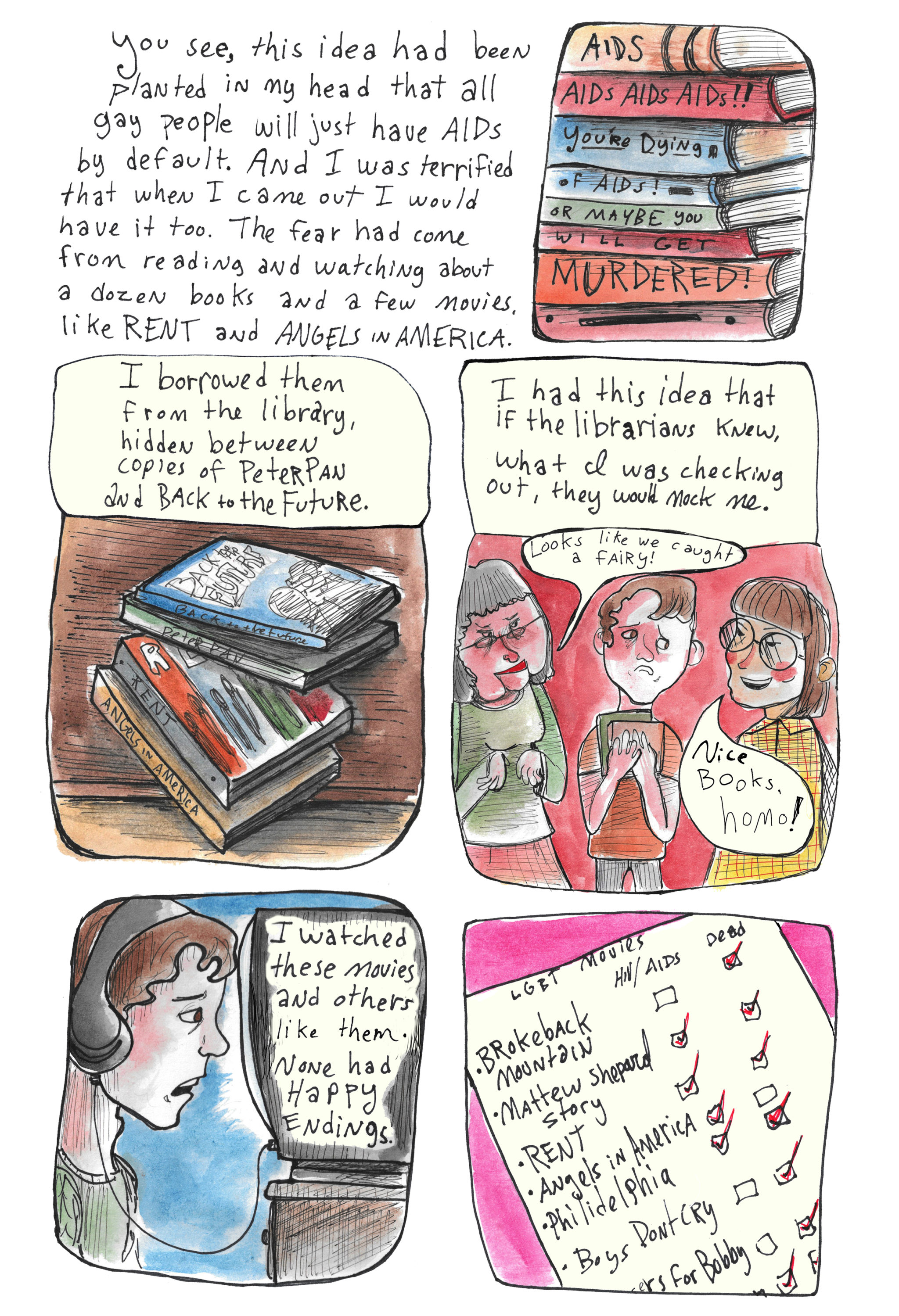
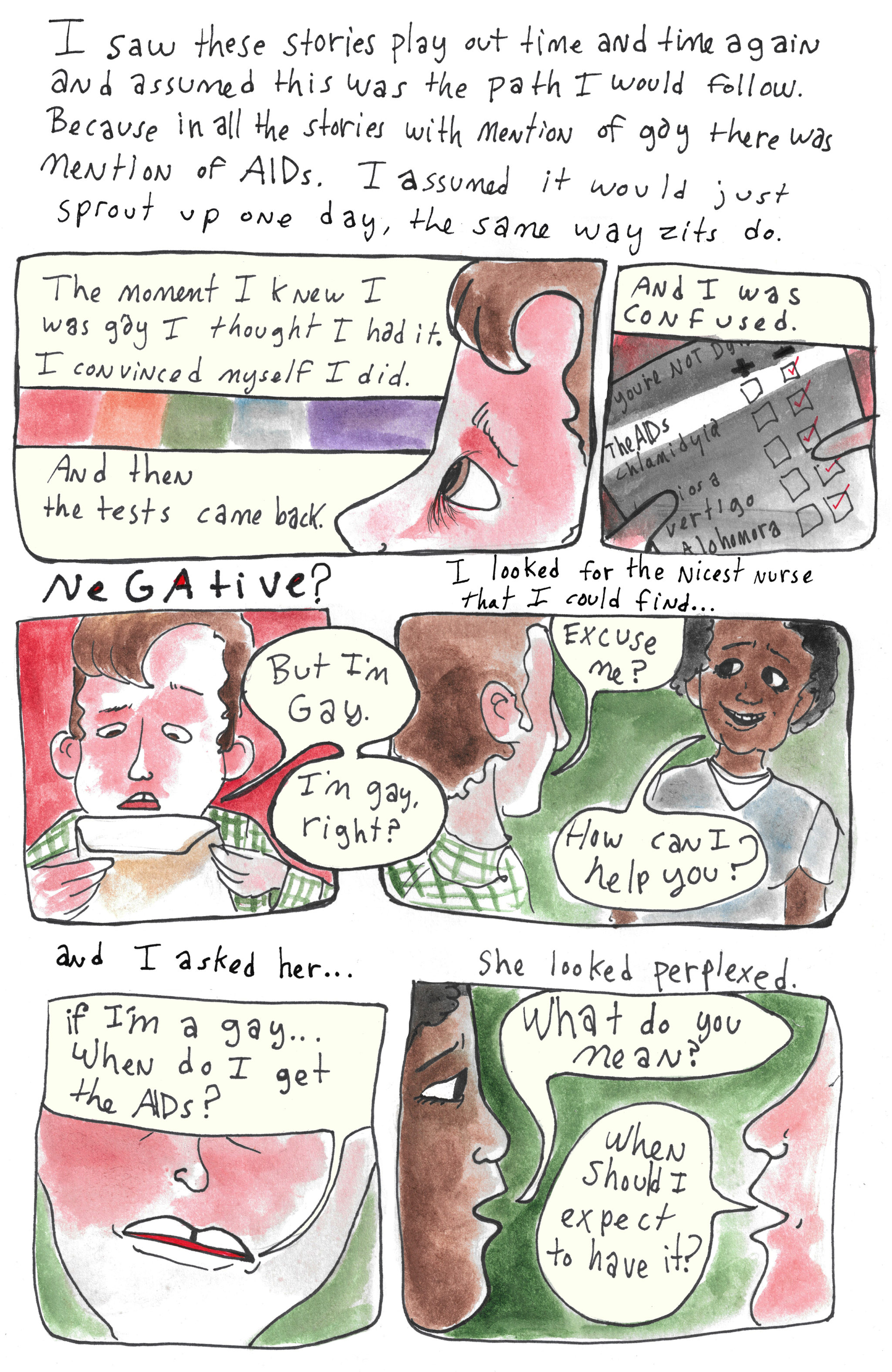
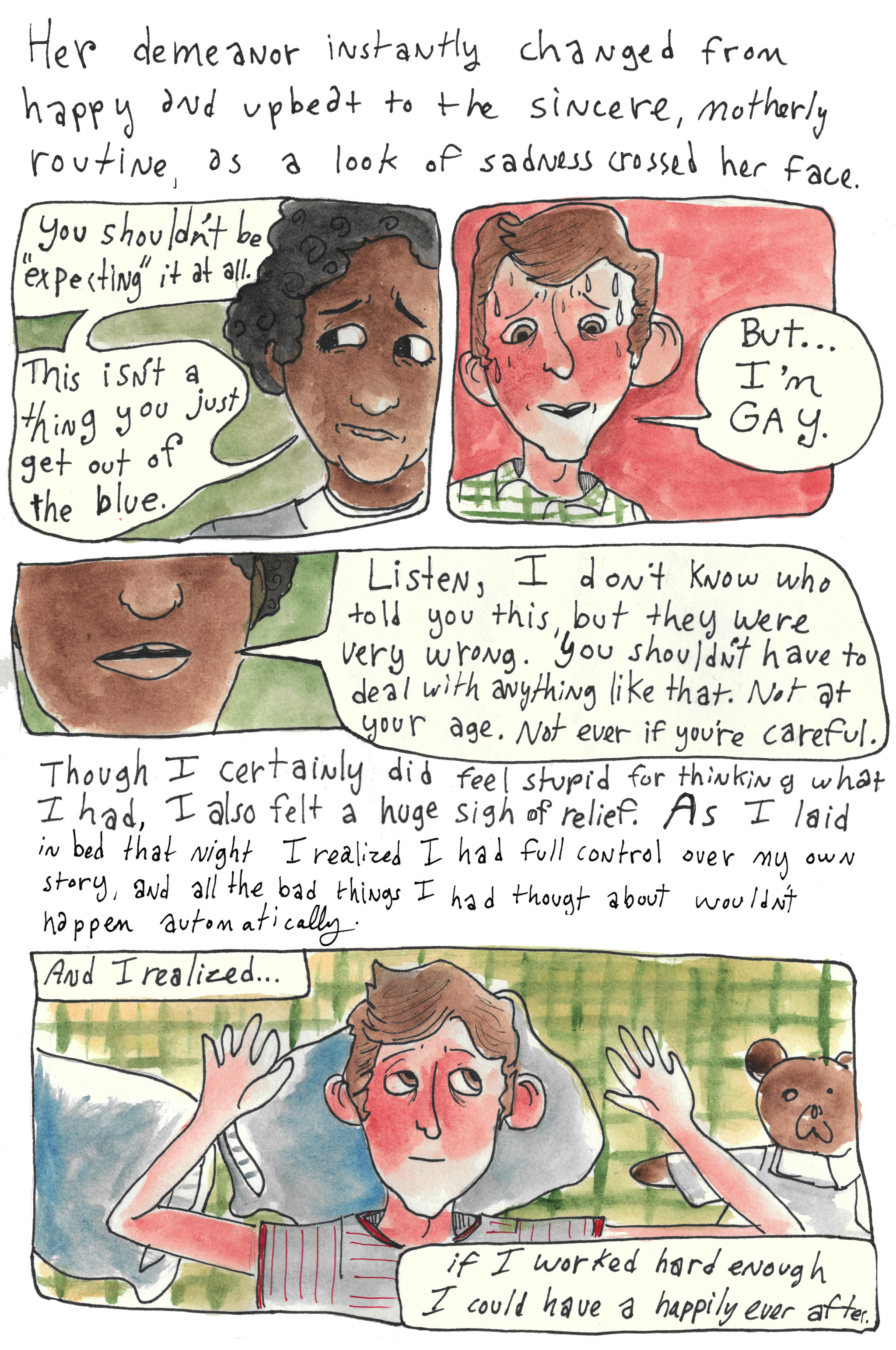
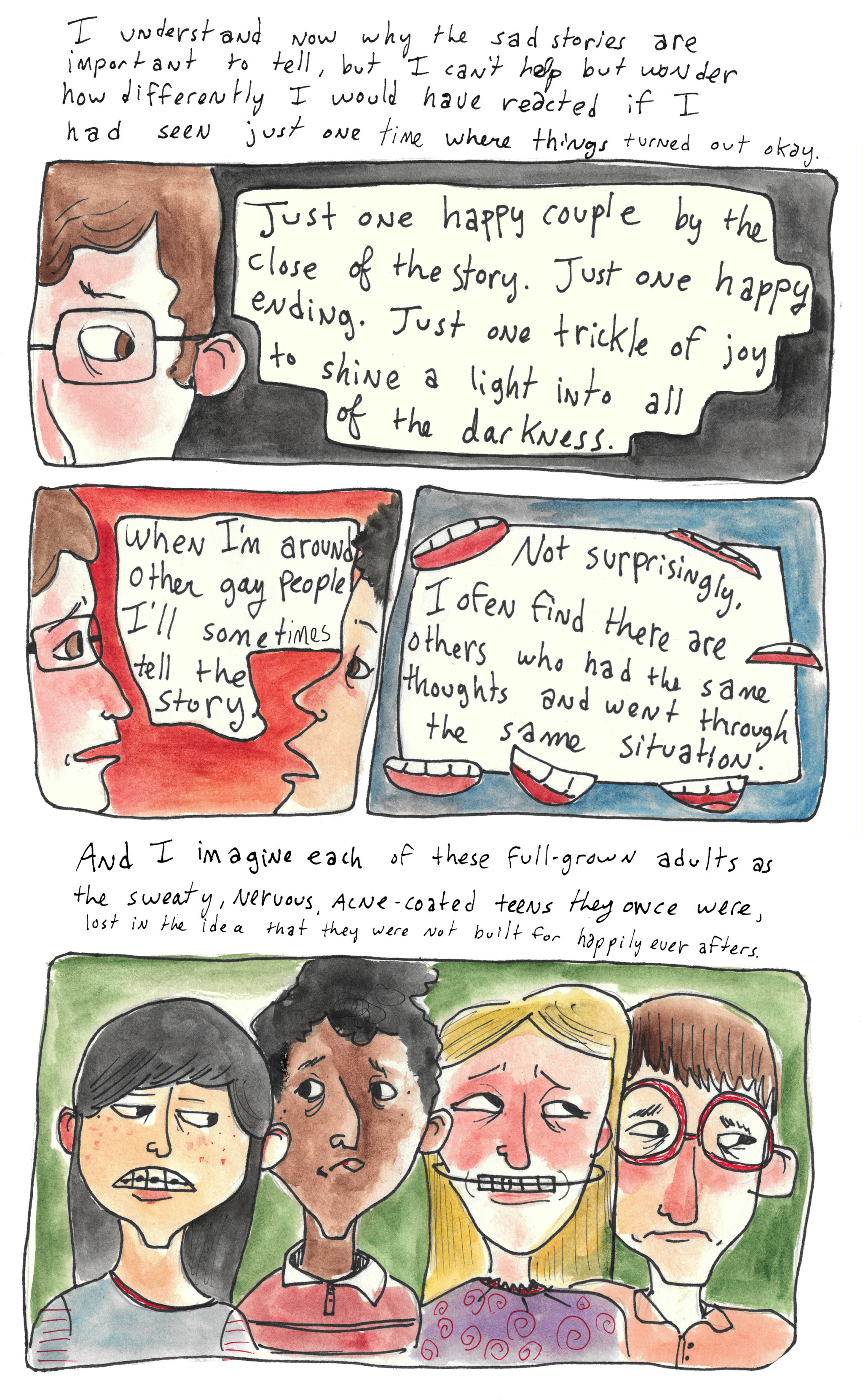
"I'm gay. That means I have AIDS, right?" originally appeared on Narratively, where you can read his other submissions on suicidal ideation and technology.
Damian Alexander of Boston, MA is a graduate student at Simmons College. His illustrations often highlight personal experiences with social equality, LGBTQ issues, and mental health. Damian's comics have appeared on Narratively, and gone viral on tumblr. He has also been a contributing writer to Polygon, Teen Vogue, and others, highlighting social issues in mainstream media. Damian is currently working on a graphic memoir about LGBTQ issues and his experiences with mental health. You can find more of his work at damianimated.com
Honorable Mentions
The judges would also like to highlight the work of three honorable mentions:
1. Madeleine Witt
Read Under the Water at Guernica Magazine, and check out her website.
The judges said:
Few of the entries registered as "editorial cartoons" in the traditional sense. The honorable mentions were typical of the inventive story-telling that characterized many of this year's entries. Madeleine Witt's multi-panel depiction of a family in transit echoed Biblical illustrations. James Tsiridis came closest to editorial cartooning with his funny/telling image of Jesus asking if the person he was going to heal had any pre-existing conditions. Moaz Eleman moved us with his fierce, unsentimental portrayal of the Sudan. In other entries, he experimented with animation. These artists are pushing editorial cartooning in new directions. We look forward to seeing where they go as their drawing strengthens to match their story telling.
This year's judges included:
Jen Sorenson
Jen Sorenson is a nationally-published political cartoonist and comics editor. She is a 2017 Pulitzer finalist and recipient of the 2014 Herblock Prize and a 2013 Robert F. Kennedy Journalism Award. Find her work at Jensorensen.com.
Mike Thompson
Mike Thompson is the editorial cartoonist for the Detroit Free Press. His work has won numerous honors, including The 2002 Overseas Press Club Award for cartooning, the national 2000 Society of Professional Journalists Sigma Delta Chi Award, the 2000 National Press Foundation Award, the H.L. Mencken award and the national Women in Communications Clarion Award. Find his work at the Detroit Free Press.
Signe Wilkinson
Signe Wilkinson is the editorial cartoonist at the Philadelphia Daily News. Signe's honors include the 1992 Pulitzer Prize for editorial cartooning (the first woman to win this award), the 1997, 2001 and 2007 Overseas Press Club Award, the 2002 RFK Award and she has the distinction of having been named "the Pennsylvania state vegetable substitute" by the former speaker of the Pennsylvania House of Representatives. Her cartoons are syndicated by the Washington Post Writers Group. You can find her work at the Philadelphia Daily News.
Thank you to our judges, SPX, The CTN Animation eXpo, and everyone who submitted to the Locher Award!
Dick Locher (1929-2017)
Richard E. "Dick" Locher, longtime member of the Association of American Editorial Cartoonists, died August 6th of complications from Parkinson's disease. From 1973 to 2013 he drew for the Chicago Tribune and won the Pulitzer Prize for editorial cartooning in 1983. Locher also worked on the popular comic strip "Dick Tracy" for over three decades, first as an assistant for the comic's creator Chester Gould and later as the principal artist and writer.
However, the Locher contribution especially appreciated by members of the AAEC, which continues to enrich the organization to this day, is the creation of the John Locher Memorial Award for young aspiring cartoonists. The award, which was named in memory of Dick and Mary Locher's son, helps the AAEC discover new talent and encourages artists 18-25 years old to enter the editorial cartooning profession.
Several Association members, including current board members, have been past recipients of the award, and Dick and Mary's mentoring and continuing guidance have been key in launching a number of cartoonist's careers. This invaluable resource strengthens editorial cartooning and the AAEC is forever grateful to Dick and Mary Locher for their dedication to supporting and nurturing the profession.
The AAEC sends their heartfelt condolences to Mary Locher and the entire Locher family.
Ann Telnaes, President
Pat Bagley, President-Elect
Nate Beeler, Vice President
Monte Wolverton, Secretary-Treasurer
Adam Zyglis, Immediate Past President
Ed Hall, Kevin Siers, Signe Wilkinson, Board of Directors
Deadline Extended!
The deadline for the Locher Award has been extended! We will be accepting submissions until Saturday, June 3rd, 2017. If you have any questions, send us an email at Locheraward@gmail.com
An Interview with Devon Manney
Devon Manney is a 21-year-old artist, currently studying animation at USC’s School of Cinematic Arts in Los Angeles. His editorial cartoons, published weekly by the Daily Trojan, deal with a wide array of socio-political issues, including campaign pandering, modern mass media, and the reprehensible Oompa-Loompa masquerading as the GOP’s presidential candidate. His cartoons, illustrations, and films can be found at his website, devonmanney.com.
1. First of all, congratulations on winning the Locher Award, Devon! It seems you primarily work on longer animated pieces - how did you start creating editorial cartoons? Was there something that inspired you to start working in the form, or something that particularly appealed to you about political cartoons?
Thanks so much! When I first got really into drawing it was about 2004 –– which meant I was surrounded by caricatures of Bush and Kerry at all times. Without really understanding politics (as I was only 9), I naturally started to doodle my own little caricatures and gags of them as well, and that was I suppose my first real exposure to political cartooning (in a limited sense). Visual art has always been my primary means of communication, and the more and more I’ve grown up, and become invested in the political atmosphere, the more I thought about new ways I could communicate my political critiques through drawing. It’s been a very natural evolution.
2. Since you began drawing cartoons, you’ve focussed a lot on the current election, and recently on the NRA and gun violence. What are some other issues that you’re hoping to cover? What draws you to certain issues?
Everything I draw usually has its origins in a deep, gut-reaction. When I wake up and see 50 people have been killed in a hate crime in Orlando, my heart hurts and my entire being becomes numb for a while. To draw editorial cartoons, to me, is to be able to wrap your hands around all of those immediate, visceral feelings and try to wring out a point-of-view that is emotionally honest without losing a sense of pragmatism. And I think that (hopefully) results in a greater diversity in the art itself –– my heartbroken gut-reaction to Orlando is different than my incredulousness at the bile Donald Trump spews, and so the cartoons I draw for each requires different writing, different compositions, and even a different artistic style altogether.
3. What artists or genres of art have inspired you stylistically, or influenced your approach to creating cartoons?
From a cartooning standpoint, my main influences are from the comic strip/graphic novel world. Maybe it’s just because I’m not a strong enough writer to compress my thoughts in a perfect single panel, but I also really enjoy the timing of writing for the multi-panel form. People like Kris Straub, Dave Kellett, Bill Watterson, and Craig Thompson (among so many countless others) are probably the most prominent personal inspirations on that front. Discovering Richard Thompson’s work has also had an immense influence on me –– his draftsmanship, humor, and ability to express human complexity in such a simple way is otherworldly –– he’s in a league of his own. David Low’s work also never fails to blow me away.
4. Your cartoons are varied in tone. Most have a great sense of humor to them, but you also have made serious cartoons, as well as scathing attack cartoons. What is your favorite reaction to provoke in your audience, and why?
The best reaction I could ever hope to have is for a person to look at what I’ve drawn and go, “Huh, I’ve never thought of [insert issue here] that way before.” I don’t know if what I’ve drawn or will draw will ever change or influence someone’s opinion on an issue, but I think that’s the goal I’m always striving for with political cartooning. That I can draw something simple, evocative, emotionally honest, and have that stick with someone who may not have considered that particular viewpoint.
5. There’s been more of a focus on animated editorial cartoons lately, and a lot of artists are doing amazing work with the medium. One of the cartoons in your Locher portfolio included animation. What do you think the most exciting potential of the animated political cartoon is?
I think in a journalistic landscape that is inevitably growing more and more digital, animated content is certainly one way cartooning can push into new territory that cannot be expressed in print. I think the true power of animated political cartoons are still somewhat underexplored, but it will be interesting to see where it goes over the coming years!
6. You do a lot of different kinds of work - illustration, design work, cartoons, but it seems like your animated work is your main focus. What do you like most about working with animation?
I started teaching myself animation when I was about 10 or so because I really loved to draw, and animation presented an opportunity tell stories with those drawings in a way comics or storybooks couldn’t. As years went by, I found that working on my skills as an animator actually helped strengthen my ability in all other artistic areas as well –– I became a better filmmaker, a better writer, a better actor, a better cartoonist –– animation has basically formed my entire artistic foundation.
7. Your current big project is Cradle, an animated short film about a returning veteran readjusting to life in the U.S. Could you tell us a little bit about this project, and what you hope viewers will get out of the narrative?
Cradle is my thesis film at USC, and it’s been my driving passion for the past year or so (along with the next year until I graduate)! The film follows a young veteran who, after losing his arms in Iraq, struggles to find normalcy again in the states. He not only has to learn to live with prosthetics, but also must adjust to excruciating phantom limb pain, learn how to help his wife Rachel, and care for his newborn daughter Amelia. It’s a story that I hope will provoke thought and interesting discussions about phantom limb pain, societal attitudes towards amputees and veterans alike, but the film’s main focus is much more universal –– a young family coming together in the aftermath of tragedy, and overcoming all obstacles. After developing and re-writing the project constantly since fall 2014, I’m finally starting the animation process and I’m really looking forward to seeing how it all turns out!
8. Thanks, Devon! Where can we follow your cartoons and upcoming projects?
I’m on Tumblr, Instagram and Twitter as @devonmanney, my political cartoons are over at yankeedoodlescomic.tumblr.com, and you can follow everything over at my website, devonmanney.com!
This interview originally appeared in the Summer 2016 edition of the AAEC's The Notebook.
Locher Award Winner Announced!
The Locher Award Committee is pleased to announce the winner of the 2016 Locher Award, Devon Manney. The runner-up is Vanessa Barajas.
Devon Manney is a 21-year-old artist, currently studying animation at USC’s School of Cinematic Arts in Los Angeles. His editorial cartoons, published weekly by the Daily Trojan, deal with a wide array of socio-political issues, including campaign pandering, modern mass media, and the reprehensible Oompa-Loompa masquerading as the GOP’s presidential candidate. His cartoons, illustrations, and films can be found at his website, devonmanney.com.
Vanessa Barajas is a Chicago-based cartoonist and illustrator. You can find more of her cartoons on her website, vanessavaladez.com
Judging the award this year was Ann Telnaes (the Washington Post), Matt Bors (The Nib) and Scott Stantis (Chicago Tribune). We received a tremendous response to the award this year, and the Locher Award Committee would like to thank everyone who applied. We would also like to thank the Creative Talent Network for providing the winner with a pass to the CTN Expo.
Deadline Extended!
The deadline for submissions to the Locher Award has been extended! The new deadline is May 15th, 2016.
The Locher Award is Partnering with the CTN eXpo!
The Locher Award has teamed up with the Creative Talent Network! The winner of the Locher Award will also receive a VIP pass to the CTN Animation eXpo in Burbank, California. The event brings together top animation professionals from across the world, and will be an excellent oppurtunity for any young cartoonist or animator.
Updated Guidelines and Application Process
The John Locher Memorial Award is now open for submissions! We have made some exciting changes to the guidelines and submission process this year.
Starting this year, the guidelines have been broadened to encompasses all full-time student cartoonists - including web cartoonists, and graphic journalists with an emphasis on political or social issues. The application is now entirely online - it takes about 5 minutes and it's free to apply.
We look forward to seeing this year’s submissions!
If you have any questions, please email locheraward@gmail.com.
Dan Nott
Locher Award Manager





